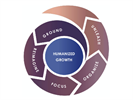Arun Sudhaman 06 Oct 2016 // 8:30AM GMT

New research reveals that UK PR firms are benefiting from a sharp rise in digital budgets, even as concerns persist over investment in training and insight.
The findings are part of the 2016 PRCA Digital Report, which polled 203 in-house and agency executives in conjunction with YouGov.
Compared to last year, the 2016 study finds a significant increase in the mean percentage of in-house marketing budgets spent on digital/social media — up to 25% vs 16% in 2015. Most clients (62%), furthermore, expect their digital budgets to grow in the next 12 months.
Driving much of that is video-based content, social influencer engagement and paid media, all areas that are attracting more spend, more agency servicing and requiring more training and education.
Attracting the most in-house spend are video-based content (62%), web design and build (55%, down 24% over the past four years) and paid social media activity (55%). Investment in social network strategy has reduced by 22% over the past four years, suggesting that this is now largely handled in-house.
In-house respondents are also more confident that they can measure the ROI of digital PR (73%) compared to traditional PR activities (65%).
The leading services that clients point to purchasing from PR and communications agencies are social influencer outreach (12%) and blogger outreach (9%). However, it is worth noting that 19% of those surveyed do not use their PR and communications agency for any areas of digital/social at all.
In addition, clients are most likely to expect the following services of PR and communications agencies: online media outreach (65%), online press release distribution (65%) and social influencer outreach (61%).
The most prevalent digital services offered by PR and communications agencies are blogger outreach/engagement (86%); video-based content (86%); and, social influencer outreach (85%). Over the past four years, the biggest drops in service offerings by agencies are seen in monitoring and listening to customers (down by 21%); and SEO (down by 20%), which must count as a missed opportunity for the PR industry.
Education and training
The majority of in-house comms people gain their social media education and insight from conferences and events (50%) and seminars and roundtables (50%), which recorded an 18% increase. There is a 31% drop in the use of expert blogs (21%).
When asked which three areas they need more education in, the highest proportion of in-house respondents pointed to social influencer outreach/engagement (31%); social network strategy (27%); and digital crisis management (27%).
For agency people, when asked about their three top sources for social media education, expert blogs are the most popular (64%); followed by conferences and events (44%) and external training courses (35%). Over half of the agency respondents believe that they require more digital/social media training (53%), led by SEO (38%); paid search (30%) and paid social media activity (26%).
Platforms
Over the past year, in-house respondents have seen the biggest growth in use of Instagram (+14%) and Snapchat (+14%).
Unsurprisingly, Twitter and Facebook remain on top, while the biggest platform losers on the in-house side are Pinterest and Google+, dropping of 14% and 11%, respectively, over the past year.
Surprisingly, given recent news, Facebook and Twitter rank highest in terms of the confidence that respondents have in measuring ROI (both 63%). These two platforms are followed by LinkedIn and blogs (both 44%).
For agencies, the leading social platforms over the past year are Twitter (95%); Facebook (89%); and blogs (83%). Facebook use has leapt from 77% to 89% in the past year. Agencies expect Twitter to be the leading platform in the coming year, with 91% of them expecting to use it for their clients’ digital PR activity.
“Encouragingly, we are seeing brands and businesses fundamentally buying into the need for digital and social investment," said Weber Shandwick EMEA head of social Danny Whatmough, who chairs the PRCA digital group. "This shift is mirrored by a willingness to invest in a broader range of digital tactics that agencies are adapting to provide. The importance of video, paid social and influencer marketing comes particularly strong this year and it is positive to see the industry being responsive to demand but also the changing media scene."
"As ever, however, there is always more work to be done and there are some worrying indicators in the research this around the continued challenge the PR industry faces around proving that it has a role to play in a digital and social world. Investment in education and talent is the only answer to this challenge and these are areas that, as in previous years, need urgent attention."


































.jpg)




.tmb-135x100.jpg)












